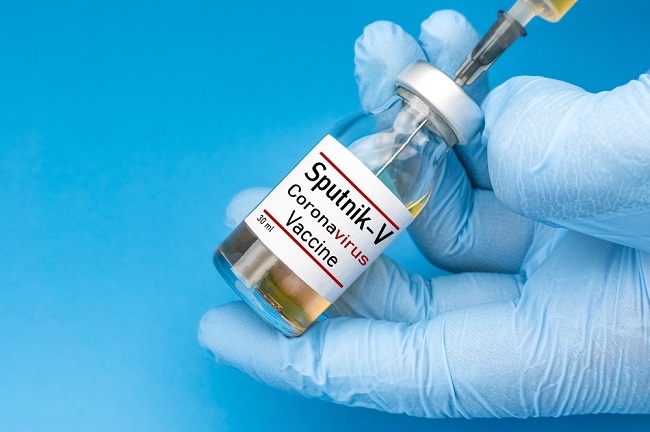The Sputnik vaccine has been pretty much talked about recently. The Sputnik V vaccine, also known as Gam-COVID-Vac, is a COVID-19 vaccine produced by the Gamaleya Research Institute, Russia.
Until now, there has been no official confirmation or notification from the government regarding the use of the Sputnik vaccine in Indonesia. However, it is possible that this vaccine will be used by the government in the COVID-19 vaccination program.

Matters About Sputnik Vaccines
Here are a few things about the Sputnik vaccine you should know:
1. Basic materials
The Sputnik vaccine uses the basic ingredients of adenovirus 26 and adenovirus 5, which are included in the virus group that causes respiratory infections, as vectors for the Corona virus protein.
The vector itself is a virus that is modified so that it can enter the cells of the human body but cannot reproduce. Adenovirus 26 and adenovirus 5 vectors are used to transport chunks of Corona virus genetic material to the body of the vaccine recipient.
2. How it works
After the Sputnik vaccine is injected, vectors containing pieces of the Corona virus gene will enter the body's cells. After that, the body's cells can read these gene fragments and produce Corona virus proteins. However, this protein will not cause infection.
With this protein, the body will actually notice that there is a foreign object and start producing antibodies to fight it. Thus, if the body is infected with the living Corona virus in the future, the immune system already has antibodies that are able to recognize and fight it, so that the COVID-19 disease can be prevented.
3. Clinical trials
The Sputnik vaccine has undergone phase III clinical trials involving 40,000 people in Russia. Participants in the Sputnik vaccine clinical trial consist of men and women aged 18 years to 60 years and over.
In addition, about 24% of vaccine recipients are people who have co-occurring diseases, including diabetes, hypertension, obesity and ischemic heart disease.
Participants in the Sputnik vaccine clinical trial are people who have never been infected with the Corona virus, have no close contact with COVID-19 patients, do not have allergies to this vaccine, and are not currently experiencing respiratory infections.
The Sputnik vaccine is given in two doses, each dose containing 0.5 ml. The first dose is given using adenovirus 26 (Ad26) vector, then within a span of 21 days, the second dose of Sputnik vaccine is given using adenovirus 5 (Ad5).
4. Clinical trial results
Based on clinical trials that have been conducted, the Sputnik vaccine has shown a strong protective effect in all age groups.
The clinical trial results also show that the immune system will produce antibodies against the virus that causes COVID-19 after 18 days from the first dose.
However, because the type of vector at each dose that is injected is different, the immune response of the Sputnik vaccine will be stronger and longer lasting after the second injection of the vaccine.
The efficacy or effectiveness of the Sputnik vaccine to prevent COVID-19 reaches 91.6%. Although still around 8.4% of clinical trial participants were infected with SARS-CoV-2, none had moderate or severe symptoms and needed to be hospitalized.
5. Side effects
During clinical trials, common side effects experienced by recipients of the Sputnik vaccine were pain at the injection site, flu, fever, headache, and fatigue.
Although there have been some reports of fatal side effects, they have occurred in people who have already had severe comorbidities, so these side effects cannot be directly attributed to the Sputnik vaccine.
The Sputnik vaccine and other COVID-19 vaccines are expected to be a solution to stop this pandemic. However, vaccine administration must still be accompanied by the application of health protocols to prevent transmission of the Corona virus.
If you still have questions regarding the Sputnik vaccine or other vaccines that have been confirmed for use in Indonesia, you can ask the doctor on the ALODOKTER application.
Label : Health
Comments
Post a Comment